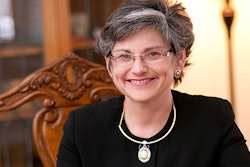Big-Time Computing for Minority-Serving Institutions
While many colleges and universities, including minority-serving institutions, have worked diligently to avoid being permanently designated as “have nots” in the digital divide, the pace of information technology innovation continues to keep virtually all American higher education institutions in a scramble to stay current on the latest advances.
Nonetheless, historically Black schools, Hispanic-serving institutions and tribal colleges are getting a boost from a computing sector known more for pushing the frontiers of science than for conducting outreach to underrepresented minorities and minority-serving schools.
For nearly four years, a coalition of the nation’s supercomputer centers, and more than 50 academic, government and corporate research partners have collaborated to back the Education Outreach and Training Partnerships for Advanced Computational Infrastructure (EOT-PACI). EOT-PACI is spreading the benefits of supercomputing technology and high-performance computing practices into historically Black schools, Hispanic-serving institutions and tribal colleges. Specifically, EOT-PACI is the joint effort of two National Science Foundation-funded partnerships, the National Partnership for Advanced Computational Infrastructure in San Diego and the National Computational Science Alliance (NCSA) in Urbana, Ill.
“The idea of EOT-PACI was to involve more institutions and people to help build infrastructure at the minority-serving institutions. This (partnership) makes it easier for a range of institutions to participate in high-performance computing activities,” says Dr. Roscoe Giles, a co-chair of EOT-PACI and a Boston University computer engineering professor.
This intervention is taking the form of assistance anywhere from sponsoring faculty members from minority-serving schools to attend supercomputing conferences to developing on-campus computing practices, such as stringing together many small computers to create the capacity of an expensive supercomputer. The practice is known as cluster computing.
Dr. John Hurley, an electrical engineering professor at Clark Atlanta University, says small- to medium-sized colleges and universities cannot afford to ignore developments in the supercomputing and high-performance computing arena, which has long been the province of government-sponsored supercomputer centers and major research universities.
“You have to keep current with the top developments and top people in the field for the benefit of your students. This enables you to help them become more competitive,” Hurley says.
Hurley explains that cost factors largely have excluded small- to medium-sized institutions from participating directly in supercomputing and high-performance computing activities in the past. The development of technical models, such as cluster computing, is giving smaller schools an opportunity to participate in projects that would have been cost prohibitive in the past.
EOT-PACI got a major boost in late 1999 when it was awarded $1 million by the National Science Foundation to participate in the four-year $6 million EDUCAUSE-administered Advanced Networking Project with Minority-Serving Institutions (AN-MSI). The award has helped tie EOT-PACI’s activities in a close association with EDUCAUSE, the nation’s leading higher education information technology association, and minority organizations, such as the Executive Leadership Foundation, the National Association for Equal Opportunity in Higher Education, the Hispanic Association of Colleges and Universities and the American Indian Higher Education Consortium.
Hurley says that while Clark Atlanta University began developing proficiency and experience early in the 1990s with high-performance computing through its association with the U.S. Department of Defense, U.S. Department of Energy and the National Aeronautics and Space Administration (NASA), EOT-PACI has pulled the school further along into high-performance computing initiatives.
One of the biggest projects pushed by EOT-PACI is the effort to bring minority-serving schools into an international computing network, known as the Access Grid. Last year, Clark Atlanta University participated in the fifth National Computational Science Alliance Chautauqua. The networked conference allowed educators from several HBCUs to use the Access Grid from Clark Atlanta University’s campus and to learn about new technologies. Clark Atlanta served as an access site for the conference, which was hosted by the University of Kansas.
While serving as one of several host locations for Chautauqua 2000, Clark Atlanta experimented with being an Access Grid node site. Having Access Grid node capacity allows an institution to have an interactive and collaborative teleconference system with multiple simultaneous connections to other sites. It also facilitates high-level interaction and research collaboration with research institutions.
“This technology allows us to play with the big boys,” Hurley says.
EOT-PACI is currently planning to send 30 representatives from minority-serving institutions to the Supercomputer 2001 conference in November in Denver. The weeklong conference showcases the latest developments in high-performance computing. EOT-PACI will cover conference, lodging and travel expenses for chosen participants.
For more information, contact Stephenie A. McLean at [email protected] or (703) 248-0122.
© Copyright 2005 by DiverseEducation.com



















